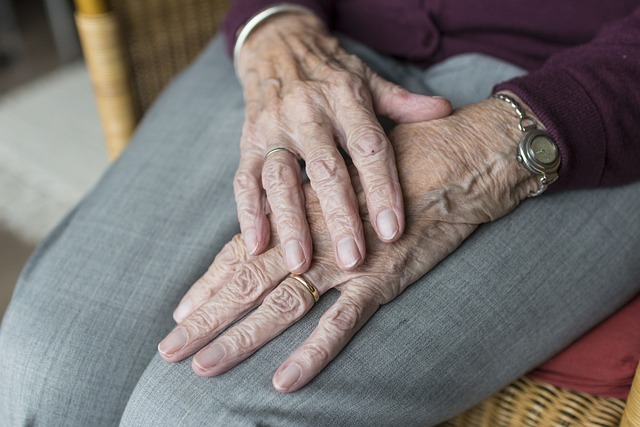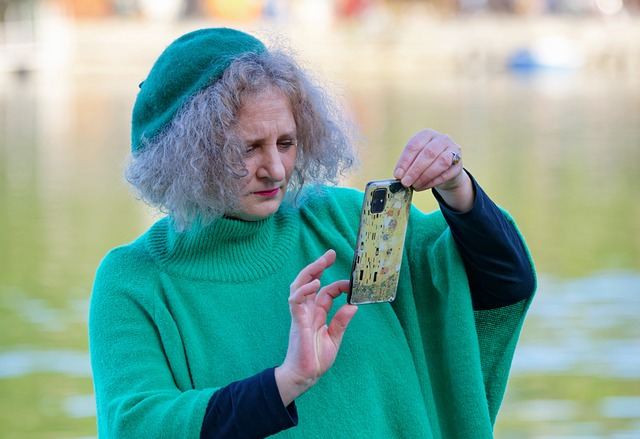Advanced technologies have transformed medication management for the elderly through intelligent pillboxes and reminder applications, which improve adherence and health outcomes by alerting, tracking, and reporting medication intake. The integration of telehealth and remote monitoring allows for real-time consultations with healthcare professionals, enabling adjustments to medication schedules. These technology solutions, when paired with attentive caregivers, create dynamic and personalized care plans that adapt to the changing health needs of seniors. Elderly companion services, enriched by these technological advancements, enhance medication adherence and provide a comforting presence, addressing individual cognitive abilities, daily routines, and preferences. This synergistic approach between technology and human interaction in elderly companion services not only promotes better medication compliance but also fosters a sense of security and independence, contributing to improved health outcomes and well-being for the aging population.
Every day, seniors navigate complex medication regimens that are critical to their health and well-being. As the population ages, the need for reliable medication reminders becomes paramount. This article explores how technology and personalized support through Elderly Companion Services can enhance adherence to prescribed medications, ensuring safer and more effective treatment outcomes for seniors. By delving into the integration of tech-savvy solutions within companion care programs, we uncover the transformative role these systems play in the daily lives of our aging population. Join us as we illuminate the path toward more manageable and consistent medication routines for seniors.
- Leveraging Technology for Medication Adherence in Elderly Companion Services
- The Role of Personalized Support in Medication Reminder Systems for Seniors
Leveraging Technology for Medication Adherence in Elderly Companion Services

The integration of technology in elderly companion services has significantly enhanced medication adherence for seniors, a critical aspect of their health and well-being. These services have embraced innovative platforms that provide timely reminders for medications, ensuring that dosages are taken as prescribed. By utilizing smart pillboxes with alarm systems, companion caregivers can monitor and assist elderly individuals in managing their medications effectively. These devices often come equipped with features that send alerts to both the senior and their designated caregiver when it’s time to take medication, thus fostering a supportive environment for adherence. Additionally, these technologies often include medication management applications that track and report medication intake patterns, allowing caregivers to intervene promptly if there are any discrepancies or potential issues with the regimen. This proactive approach not only helps in maintaining the health of seniors but also provides peace of mind for their families and guardians.
Furthermore, the use of telehealth and remote monitoring within elderly companion services has expanded the scope of medication management. These services can facilitate virtual consultations with healthcare providers, enabling real-time adjustments to medication schedules if necessary. The integration of health data from these technologies feeds into a comprehensive care plan, ensuring that seniors receive personalized and up-to-date medical advice tailored to their unique needs. This collaborative effort between technology and human caregivers in elderly companion services is pivotal in promoting better medication adherence outcomes for the aging population.
The Role of Personalized Support in Medication Reminder Systems for Seniors

Personalized support within medication reminder systems plays a pivotal role in ensuring seniors adhere to their treatment plans effectively. These systems, often integrated with elderly companion services, are designed to cater to individual needs, considering factors such as cognitive function, daily routines, and personal preferences. By leveraging sophisticated algorithms, these reminders can be tailored to the user’s unique schedule, delivering timely alerts through a variety of devices, including smartphones, tablets, and specialized pillboxes. The integration of elderly companion services further enhances this support by providing a human element to the system. Companions can offer assistance in understanding and managing medication schedules, reinforcing the reminders with face-to-face interaction, which is particularly beneficial for those who may struggle with hearing impairments or have difficulty reading small text. This dual approach of technological and personal support not only aids in improving medication compliance but also fosters a sense of security and independence among seniors, ultimately contributing to their overall well-being and health outcomes.
Seniors can significantly benefit from the integration of technology within elderly companion services, particularly through personalized medication reminder systems. These innovative solutions not only enhance adherence to prescribed medication regimens but also empower seniors to maintain their independence and health. By embracing these technologies, companion care providers can offer robust support tailored to each individual’s unique needs, ultimately contributing to better health outcomes for our aging population.






